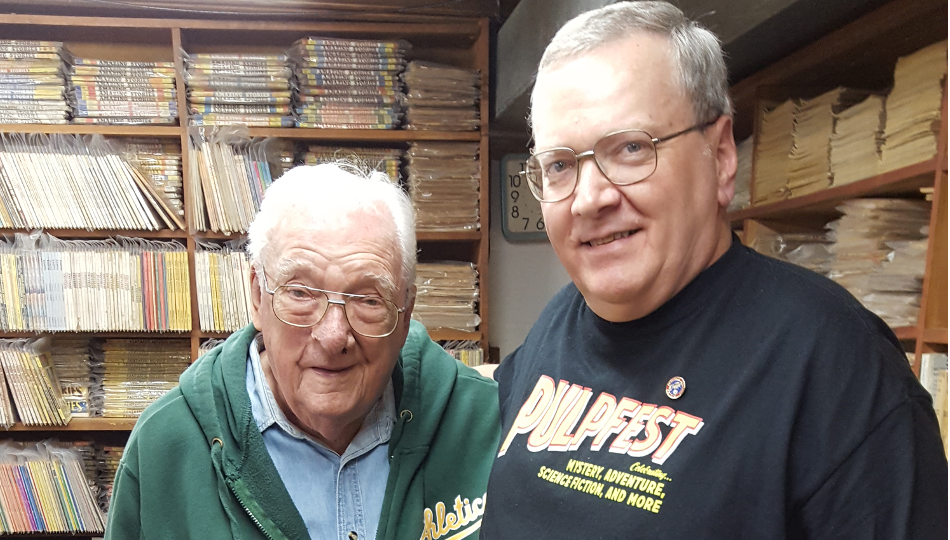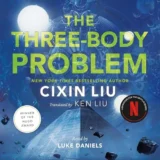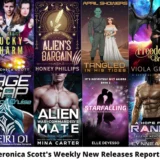I started reading Science Fiction in the 1960s. I read contemporary works then, but also older works…stories from the 1920s, 1930s, 1940s, 1950s. While there was plenty of new SF being published, there was even more older stuff on the market and in the magazines (if nothing else, it was the heyday of Ultimate Publishing’s reprint magazines that I could purchase locally for a quarter each, or five for a dollar. I had a lot of those). Publishers were mining the vast stores of earlier magazine publication for anthologies and collections. When you finished off that latest Heinlein release, there were plenty of Ace Doubles, Best of the Year anthologies and author collections to turn to.
I was too young in the beginning to turn a really critical eye on those older stories. I was also largely ignorant of societal issues as it would take a bit of time before I learned to extend my upset over being bullied and teased as the “shortest boy in the class” to other cases of unfounded discrimination. And so far as misogyny goes, the fact that women were second class citizens was so woven into society’s fabric that no one questioned questioning it. On the technological front, men (deliberate call out) had gone to space (yeah, the Soviets had sent a woman too, but they were Commies, so that was, by default, something that didn’t count, was probably a lie and undoubtedly stupid, risky, only meant for publicity purposes and they’d more than likely forced her to go, just like that dog, Laika). But we’d not yet landed on the Moon, and whether that could be done successfully still remained a big question.
Computers were around, but not even Isaac Asimov had begun touting them as household appliances. If you wanted your television set to work, you still needed to use vacuum tubes, engineers still worked slide rules, air travel still allowed smoking on all flights, 45s were a thing, no one questioned toy guns, the big civil rights movement was just coming to a conclusion, and you would still get change back from a dollar for a complete McDonalds meal.
Given the milieu, it’s no wonder that we ran into fewer “disconnects” when reading older works, if only because not all that much had changed, either technologically or societally, between the 1940s and 1960s. Casual misogyny, for example, wasn’t misogyny, it was just the way things were. People of color not appearing, or being relegated to background roles wasn’t racist, it was just the way things were. Likewise and moreso for alternative lifestyles and gender expressions. Billie Jean King beating Bobby Riggs in the Battle of the Sexes wouldn’t be a thing for another two decades.
Seeing how much has changed over the past half century (and more), it’s no wonder that readers new to the genre find much of the older works – despite their importance – to be a slog, if not an off-putting, DF, experience. (SF is a genre that is “built upon the shoulders of giants”. It is a literature that informs upon itself, examines new ideas and then re-examines them, every new work in dialogue with everything that has gone before. You don’t need to have read older works, but your enjoyment of and understanding of contemporary SF will be enhanced if you do.)
There is a solution, however. It involves a bit of mental gymnastics, reading with a slightly different mindset, but one that I believe retains a “science fiction state of mind”. And its pretty simple:
Those works that threaten to throw you out because of some societal disconnect? They weren’t written in our reality. They were written in an alternate timeline, one in which the changes WE have experienced didn’t take place for one reason or another.
Heinlein’s spaceships don’t have computers? What a complete lack of vision on this vaunted author’s part, right? Wrong. In the reality in which those novels were written, humankind deliberately avoided the use of electronics in favor of learning ways to do things themselves. Every schoolkid learned trig. Of course fission piles were manually controlled – the Interplanetary Brotherhood of Fission Pile Workers wouldn’t have things any other way. (You try running an electrically operated society when they go on strike and see how long that lasts!)
Women have no agency? Are only around to make coffee for the “real” characters? Maybe the 19th Amendment never passed in that reality. Or maybe Phyllis Schlafly was far more politically successful in that universe than in our own. (Or maybe, as some of those older works might seem to argue, women just didn’t want equality. With total lack of power comes total lack or responsibility, and the opportunity to “innocently” screw with the Patriarchy.)
So it goes for any other disconnect between society then and society now. This is supposed to be a genre of BIG ideas, tremendous creativity, endless possibilities. Surely readers can imagine some alternate reality circumstances that “explain” things that led to the story being written the way it does.
I’m not advocating for dismissing those things…not at all. In fact, I believe that ruminating on them and coming up with alternative realities that explain them, or, rather, explain the circumstances that could have led to an author writing it the way they did, can be a valuable examination of the work itself. What did the author have to believe , what external influences were at play, that led to the story being written the way it was?
With the added bonus that when you emerge from that story, you may just be more aware, and more appreciative, of the societal changes we’ve experienced over the intervening decades. (Not that things now are anywhere close to being the way they ought to be, but progress is in evidence.)
Try it. You might find yourself reading a few more pages rather than throwing the book (or your Ebook reader) across the room.
Steve Davidson is the publisher of Amazing Stories.
Steve has been a passionate fan of science fiction since the mid-60s, before he even knew what it was called.









Indeed.
What is interesting in Schmitz’s case is that it leaves no excuse to the other writers: it could be “thought” (he did it, and he does not seem to have been particularly “progressive” at that…) and they could have done it.
Concerning “legacy” SF, I read it with this distance in mind, of course – which is the same we have with their “advanced” technology, to our eyes often deliciously, and sometimes funnily archaic.
We know that by and large SF tells us about the present, and the best of it about the intemporal (exists in English? not sure), from its unique perspective.
Well, now you’re touching on one of my favorite – won’t call it a “pet peeve” regarding contemporary reception of the genre…maybe its more of a “button”…
The original definitions of what Science Fiction was generally contain three elements, described in one way or another. Those are – entertainment, reality-based, and extrapolative.
There is nothing that prevents inclusion of those three elements in an SF work that is “commentary on our times” – but that was not the primary focus, nor discussed critically, at least up until the 1980s.
You can “rescue” the commentary on our times thing by suggesting that an extrapolative work, being based in “our time” is obviously commentary, but that’s not what most people these days mean when they use that term.
The genre originally focused on future development, both in advocacy and in warning. Here’s an idea, based upon what we know now, which might make things better in the future. Here’s an idea that could develop out of what we’re doing now and we probably don’t want to go there.
I’ve yet to see or read an author writing SF from the 20s through the 80s who declaratively stated “my novel is a commentary on contemporary times”. I have seen numerous videos and read much commentary where they say, quite forcefully, our business is about predicting where things may go in the future – even though we know that it is a fool’s errand.
Here’s a link to one Arthur Clarke, who is an icon of the Science Fiction genre, telling the BBC exactly what Science Fiction is – and not only does he never say anything about commenting on (his) contemporary times, he never talks about contemporary times. https://www.youtube.com/watch?v=YwELr8ir9qM&t=53s
In large measure, the adoption of “literary” fiction techniques occurred at about the same time that the shift from “predicting the future” to “commenting on our times” took place and I believe is owing, at least in some measure, to the fact that people who took up writing in the genre were literary types, not science or engineering types, who therefore had little experience or facility with robust scientific extrapolation.
What’s needed is the re-introduction of those “thought-experiment” approaches in combination with the better characterization, plotting, story telling that have been adopted from “literary fiction”, not a wholesale supplanting.
Dear Steve,
I fully agree with the gist of your comments (disclosure: I’m 69 years old). I would just make two remarks, one specific and one general:
1) “Women have no agency?” – About this, I think it fair to mention one exception I discovered a few years ago to my delight : James Schmitz, who as early as the forties (“Agent of Vega”) and later (the whole Telzey Amberdon/Trigger Argee sequence) told stories whose main characters were fully capable and purposeful women, who (perhaps more to the point) had zero emotional dependency on any of the males who happened to be around. (He was also a pioneer of ecological tales, but that’s another topic).
2) This Big Question is not new! The Iliad (you know, that very ancient and very famous story) starts with the wrath of a Hero who was supposed to be given a young captive (to rape) and is frustrated that she was given instead to the the head general of the coalition (who got to rape her). Is this making us a bit sick? No Sir, the tale remains a legendary monument of Universal Literature. For centuries we just overlooked the… Er… embarrassing details. At least in modern times we have started to talk about these (U.K. Le Guin wrote a text on the Iliad which wasn’t overlooking anything…). When we tell of Ulysses being back home and making even with the pretenders, we forget that all the women of the house (=female slaves) who had yielded to those guys were hanged. They were supposed to have had a choice, you see, and also to be loyal to their absent master… You never saw this scene in a movie? Of course! It is not something that can be shown nowadays. So we have started to rewrite the old story, for it to fit our present values. That could lead us to talk about the most recent movie version of Dune, but again it’s another topic (or is it?)…
thanks for the comments.
I was, of course, addressing the generalized reception of things these days. One of the major claims (usually justified) that older SF does not give women agency in their stories is usually one of the first objections/obstacles to reading that is mentioned (just as “but it’s in black and white” is usually the first complaint you hear about older films).
Generally though, I think being a slave, regardless of gender, is an exemplar of having no agency.